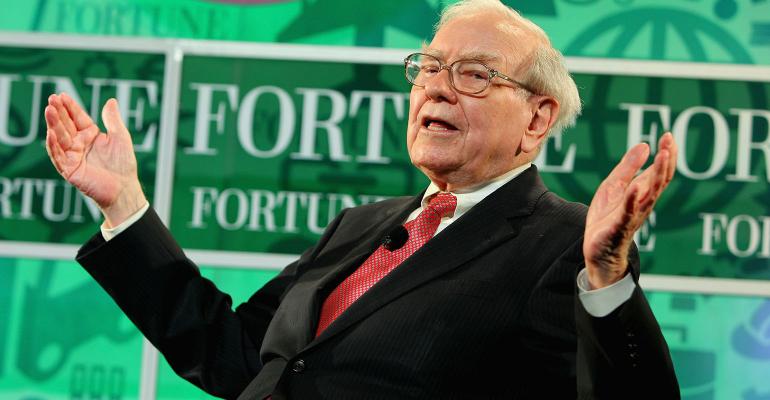Jack Bogle and Warren Buffett have both reached iconic status in the investing world, and for good reason: they've made a pile of money for investors. But while their advice to us has been historically good, it's no longer the best thing you can do for your money.
Bogle, founder of Vanguard, invented the index fund. Buffett is considered to be one of the best active, value-focused investors of all time. Though their claims to fame are distinct, their advice for the average investor is the same: invest passively at a low cost. Put 10 percent of your cash in short-term government bonds, Buffett says, and 90 percent in a low-cost passive U.S. stock fund, like a Vanguard fund tracking the S&P 500.
Today, you should expect to do better than you would if you just bought a fund tracking the S&P 500, because there’s so much more you can do beyond just that. You can optimize for taxes, reduce behavioral biases, get personalized advice — all things that are going to help you make more of your money. Based on our research, we expect a globally diversified portfolio, with tax optimization, to outperform the S&P 500 over the long term.
It starts with your financial goals and an investment strategy that’s specifically designed to help you achieve them. A 90/10 portfolio might work for someone’s long-term retirement goal, but what if you are about to retire? What if your daughter is going to college next year? What if you can’t stomach the significant ups and downs that come with such a portfolio? Each of these scenarios requires a different portfolio asset allocation and tax optimization strategy.
Saving taxes on your investments starts with the investments themselves. Index funds, like Buffett recommends, are particularly good choices because of their low turnover and therefore low tax profile.
Additional tax optimization strategies, such as tax loss harvesting, could save you even more. Our internal research shows that automating tax loss harvesting could add an estimated 0.77 percent in after-tax returns annually, in your taxable account.
Another way to increase after-tax returns is to shield your dividends from taxes. By putting your assets that are taxed more in your IRAs (which have tax breaks) and putting your assets that are taxed less in your taxable accounts, you could increase after-tax returns by an average of 0.48 percent each year. Over 30 years, that’s an estimated 15 percent more in your pocket.
Behavior Optimization by Design
We agree with Bogle and Buffett that a passive investment strategy is the best way for most investors to manage their money, but research shows that the likelihood of an investor actually leaving their portfolio alone is low. For example, Morningstar reports that while Vanguard’s S&P 500 mutual fund has returned 7.23 percent per year over the last 15 years, investors in the fund have taken home 5.16 percent, a 2.07 percent investor returns gap due to investment timing. For this very reason, we’ve built specific behavioral guardrails and nudges that help you be a better investor.
Why You Should Invest Beyond U.S. Stocks
A collection of global indexes is an evolution of the same principle behind a U.S. index. Just as the S&P 500 once offered superior diversification to the 30-stock Dow Jones index, a global portfolio extends that advantage over a U.S.-only portfolio. International investments provide broader exposure, manage risk and reduce home bias (i.e., the tendency to invest in familiar domestic companies for which you may have a sentimental fondness).
The Investing Pioneers Would Likely Agree: Indexing Must Evolve
Just because something is great doesn’t mean it can’t be improved. For a while, there were just seat belts; now we have airbags. For a while, there were just landlines; now we have smartphones. All aspects of our lives will continue to be improved through better technology.
Advancements in technology are what made the index fund possible (nobody’s doing all that math by hand). Technology gave us cheap funds that track the S&P 500, and increasingly cheaper international and emerging market funds. Now, technology is allowing us to leverage these prior innovations and use them as building blocks for further optimization. It’s not a competition; it’s a continuation. We don't think the index pioneers would argue that they had reached the natural limits of what automation could achieve.
Jon Stein is the CEO and founder of Betterment.





